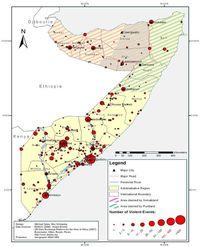Research Area C - Security
In the first funding period of the Collaborative Research Center (SFB), the Project Area C (Security) investigated whether security can be established in areas with deficient state control and capacities, and if so, how this is accomplished. To this end, areas were chosen and researched in which security has become a scarce – or even privatized – commercial good. Observing that aside from the State, a broad spectrum of actors is involved in limiting and regenerating security, the research projects concentrated on the questions of how, by whom, and to what extent security is established, and how much state is necessary in order to ensure its endurance. The research projects included forms of transnational security governance (C1 Zürcher, C3 Braig/Maihold), as well as an examination of various “shadows of hierarchy” in connection with opportunity structures and local conflict dynamics (C2 Chojnacki). Collectively, the research projects identified a vast range of negotiating actors in complex, multilayered constellations. We concluded in all cases that the strategies of security actors vary greatly depending on geography and time period, and that the same actors change their strategies at different times and in different places. Concerning security production, it was useful to distinguish between the “provision of physical security” and “rule and norm-based security.” With regard to the various modes of action coordination and the relevant power relationships, it was helpful to differentiate between security receivers (security for whom?), qualities of security (security as a private, exclusive, or collective good), and security producers (security by whom? e.g. private military firms, local militia, or warlords), as a first step towards developing a typology of the complex networks of actors.
Project Area C will continue to work with this typology in the next phase of funding, analyzing modes of action coordination and investigating statehood as a contextual condition for security governance (SFB research goals 1 and 2). To strengthen these efforts in an interdisciplinary way, the project area has expanded to encompass two historical projects (C4 Lehmkuhl / Finzsch, C5 Rinke) and one in law (C8 Krieger). Empirically, both the historical and contemporary projects examine transitional societies and governance forms marked by transitory constellations of rule in (present or historical) times of upheaval.




